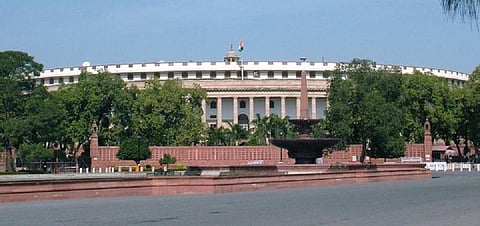

The Union Ministry of Environment, Forest and Climate Change (MoEF&CC) has not been able to issue the final notification to declare Ecologically Sensitive Areas (ESA) of the Western Ghats, Ashwini Kumar Choubey, minister of state, told the Lok Sabha July 18, 2022.
The ministry had issued a draft notification February 10, 2014 for 56,825 km2 area spread over Goa, Gujarat, Karnataka, Kerala, Maharashtra and Tamil Nadu based on the Kasturirangan Panel (high-level working group) Report, he said.
The final notification is held up because of persisting demand from the states to reduce / alter the ESA area from the recommendation of the report, Choubey added.
MoEF&CC issued guidelines to states / Union territories on June 3, 2022 on managing human-wildlife conflict, including damage to crops, Choubey told the Lok Sabha.
These includes:
In India, 532 human lives were lost to elephant attacks in 2021-22, Bhupender Yadav, Union minister for environment, forest and climate change told the Lok Sabha.
Five people were killed by attack of wild elephants in human habitation during the last three years in Kerala’s Kannur Forest Division, he added.
A field manual for frontline staff to manage human-elephant conflict was released during the 16th meeting of the Steering Committee on April 29, 2022, Yadav added.
The office of the Registrar General of India doesn’t have average life expectancy data specifically for tribal communities, as the data is maintained state- or Union territories-wise, said Renuka Singh Saruta, Union minister of state for tribal affairs, in the Lok Sabha.
General average life expectancy at birth has increased to 69.7 years in 2015-19 from 69.4 years in 2014-18, according to the Sample Registration System (SRS)-based abridged life table 2015-19 published by the office of the Registrar General and Census Commissioner, Government of India.
MoEF&CC has granted environmental clearance to 10 coal-based thermal power projects over the last three years, Choubey told the Lok Sabha.
Information related to a survey done by the government with regards to deaths due to air pollution and compensation paid to the victims is not available, Choubey said.
The Centre, however, had launched the National Clean Air Programme (NCAP) in 2019 as a national strategy to reduce particulate matter concentration 20-30 per cent by 2024 across the country, the minister said.
City-specific clean air action plans have been prepared and rolled out for implementation in 132 non-attainment and million-plus cities, he added.
NCAP has been implemented in 132 cities in the country, Ashwini Kumar Choubey said in the Lok Sabha.
There has been an overall improvement in particulate matter 10 (PM10) concentration in 95 cities compared to 2017, according to Choubey. These include 20 cities conforming to the National Ambient Air Quality Standard in the year 2021-22, he said.
As much as 22.07 per cent of e-waste generated in India was processed (dismantled and recycled) in 2019-20, Choubey told the Lok Sabha.
These are from the 21 types of electrical and electronic equipment notified under the E-Waste (Management) Rules, 2016, the minister added.